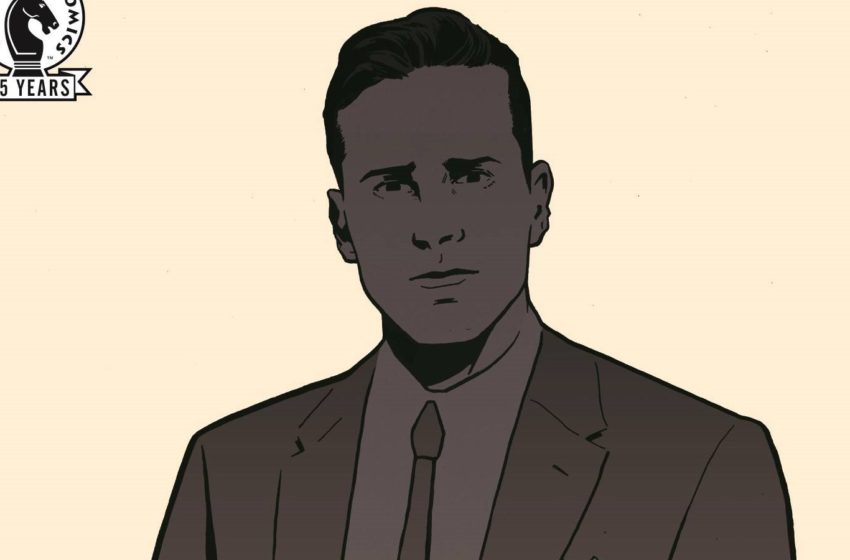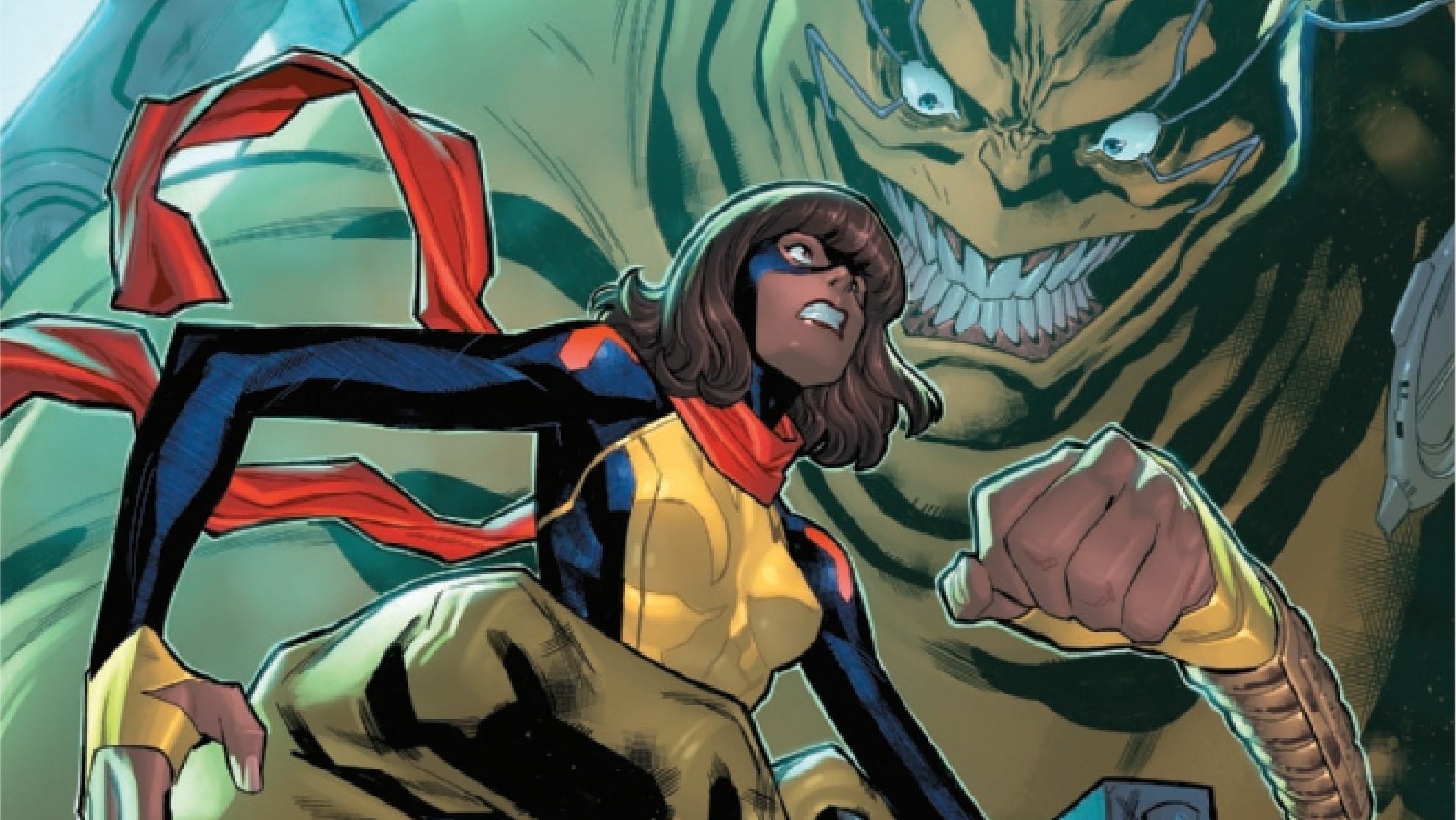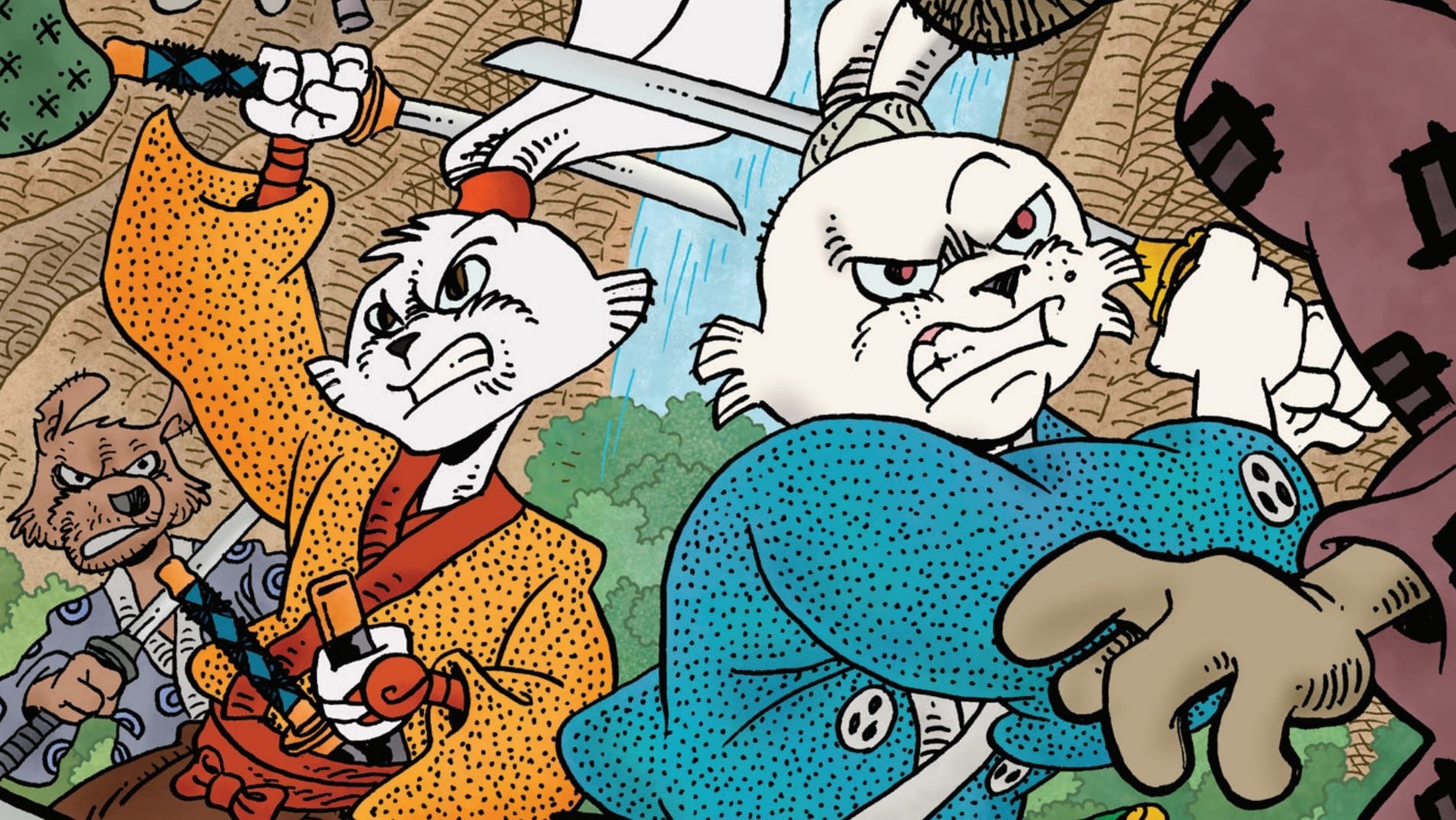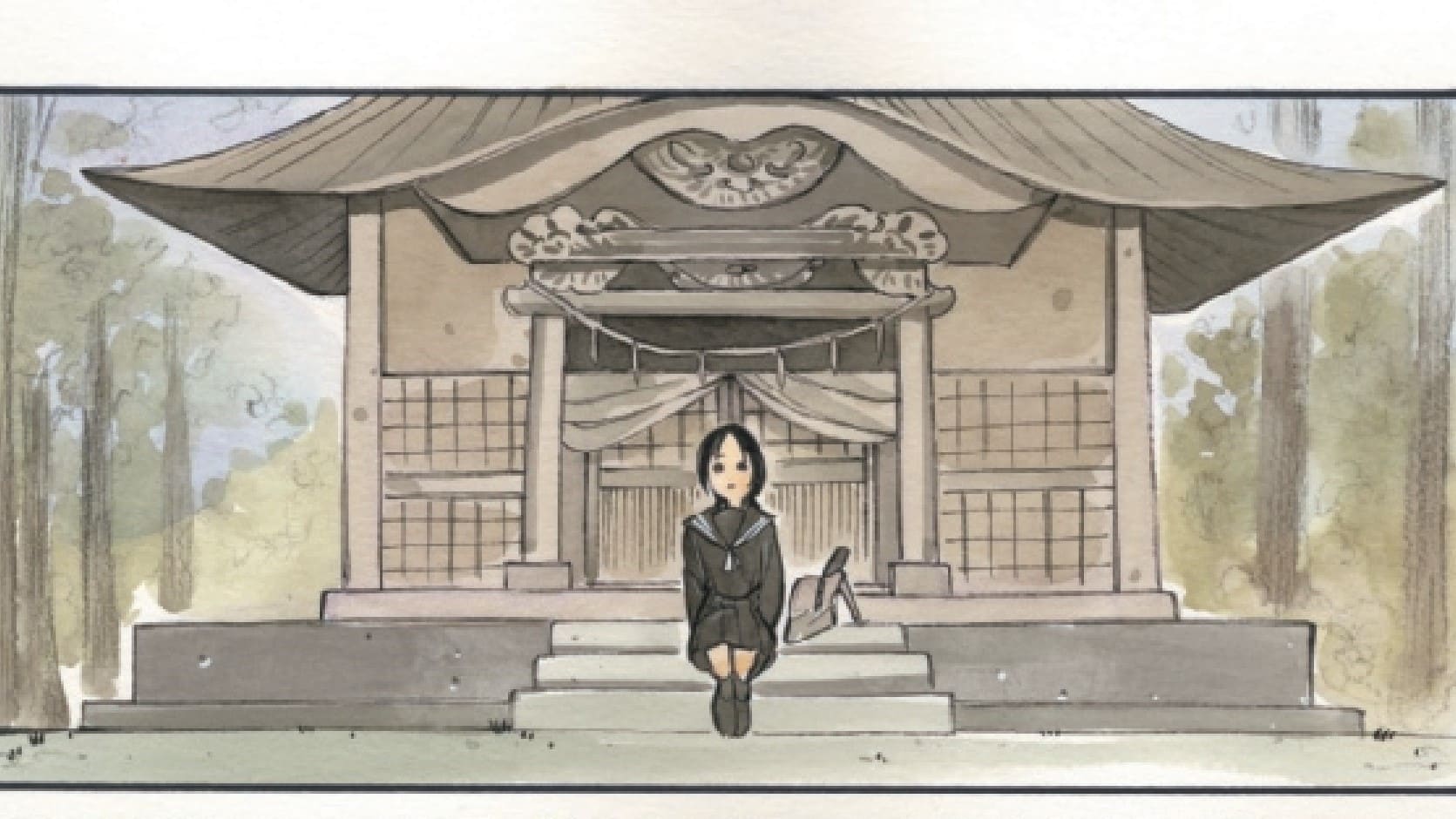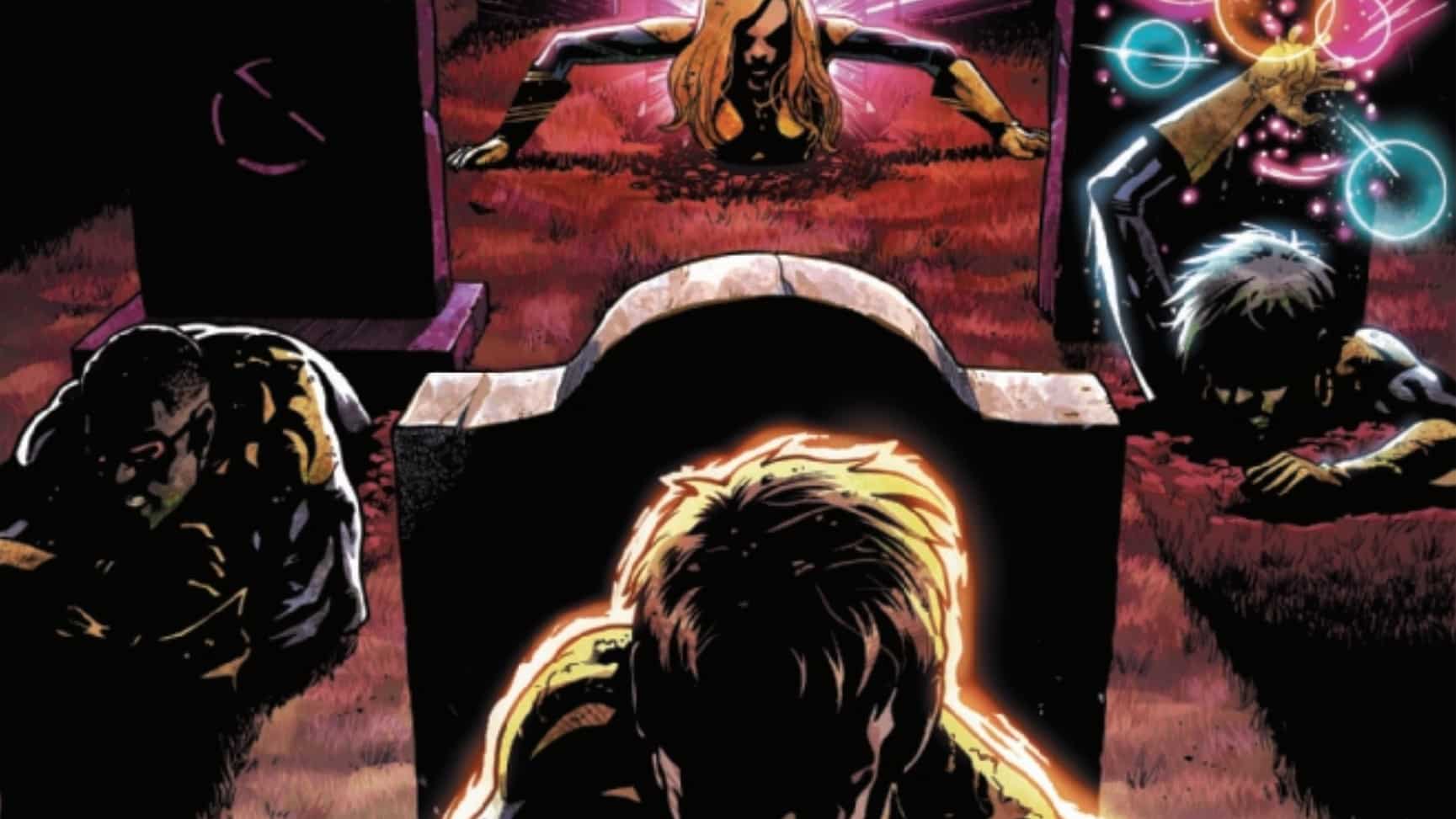Joe Bradley is almost at the heart of the maze, at the center of which lies Lady Pendermills and all the answers Joe needs about what’s happened to Pendermills’ missing people. What she learns in her final confrontation will change everything she thinks she knows. Written, drawn, colored and lettered by Tyler Boss.
I am slow.
It takes time for me to process things. For the weight of things to sink in, for me to sort out their implications and compartmentalize them enough for me to focus on what’s relevant. It takes me time to gather my thoughts, put them down in one place to my satisfaction and use the articulation of my feelings to properly understand not just things that may have gone over my head, but to understand what it is I’m feeling.
On a first read, the finale to Dead Dog’s Bite left me scratching my head, confused, unsatisfied and at a loss — that last bit most of all. I feel like I had reached out for something, assured it was there, and had my hand pass through empty air instead. Every once in a while a story will come along, draw you into its world, make you love its characters, its style and the dance its pacing weaves inside your head. A story that pulls the rug right out from under you at the end, leaving you distressed, your heart beating a little faster, wondering with an anxiety you weren’t expecting to have: “Wait, that was it?”

There is a form of meditation — a warped simplification of the art of zen — that lies in asking questions that derail your train of thought. Throw you off the tracks of comfortable thinking. Expand your mind by meditating on something from a whole new angle you’d never considered before — the shock of the unexpected putting the familiar into new contexts, changing the nature of everything that’s led to this point. The final pages of Dead Dog’s Bite were that shock to me, and it was in this zenlike state that I began going through earlier issues, my own earlier reviews, looking at all the clues I’d picked up on that I thought myself so clever for having found, not realizing the deeper meaning that had been (obnoxiously) staring me in the face the entire time.
Let’s talk about what happened. Spoilers abound.
Tyler Boss escalates the surreal horror tones that began at the end of last issue. A flashback to a kiss between Joe and Mac Guffin — a moment neither of them had a chance to talk about before Mac’s disappearance — leads into visions of Joe walking through MC Escher stairways bathed in red light, as our narrator muddles the stories of Alice in Wonderland and The Wizard of Oz to ask: “What is the point of all this?”
Joe wakes from her epileptic fit to find that Allen has rescued her. It’s not long before she figures out that (unsurprisingly) he’s the mysterious hooded figure who’s been following her — that whatever conspiracy is going on, he’s a part of it, too. Throwing herself out of his moving car, she immediately makes her way to Lady Pendermills’ mansion, to end things once and for all. These silent pages leading up to that confrontation are haunting. Without dialogue to slow me down, I tend to speed through silent panels, quickening the pace of a comic, but Boss’ chilling use of shadows and quiet candlelight force me to linger. Boss has always been a master of selling a mood, and a series that has been largely quirky, cozy and even amusing aches with solemnity here. You don’t run through these panels — there is a weight here that demands your respect. That, mingled with the dread that’s been steadily building up to this point, builds the tension marvelously toward the final confrontation.
Holding an unmasked and vulnerable Lady Pendermills at gunpoint, Joe demands answers — though a mute Lady Pendermills has none to offer. The situation is complicated by the arrival of Chief Esper, who’s also revealed to be a part of whatever conspiracy is going on. Like many small-town conspiracy stories, it turns out that everyone is in on it, as Deputy Dunway sneaks up behind Joe to knock her out. Joe awakens alone in a room, shown a film reel that’s apparently shown to every Pendermills resident on their 18th birthday, and that’s where we get our answers. The history of Pendermills, the identity of our narrator and the tragic massacre that haunts the town’s history lie ahead.

It’s finally revealed that nothing sinister has happened to the “missing” people who signed their name in red. Every resident in town gets a choice — help heal this town, with its broken past, or leave it behind forever, with a full scholarship provided to help them find their way. There’s a real sense of anti-climax here. The awkwardness of “This isn’t how we wanted you to find out — there was a whole presentation” and the painful realization that Mac wasn’t taken from Joe — Joe was left behind. By her father, and by Mac, without a word of goodbye — though tucked into the registration book is one final letter from Mac to Joe — an abstract explanation for why Mac left, and an explanation for the series’ title.
The series ends without much fanfare. We’re not told whether Joe signed in black, to stay, or red, to leave. We don’t get any real insight into how Joe processes all this, and reacts to it, any indication of what comes next. All we’re left with is a sense of loss, tragedy and the solemn purpose of a town determined to tell its own story. All I was left with was panic. Was this it?
Frantically I flip back to Dead Dog’s Bite #1, on to #2 and #3, and back to #4. Rereading pages over and over again. Over the past months, the unexplained “Dead Dog’s Bite” became like a word you repeat to yourself a hundred times until it loses all meaning; trying to find meaning for it being used in an actual sentence was a mental blindspot for me I had to deconstruct. I had to work to process the finale’s revelations. Re-experience every abstract mystery, only to have it all finally make sense.
There was always something heavy hidden in this town’s history — you could feel the weight of it in every issue, even without ever really understanding what it was. On a reread, the swirly peppermint spirals that appear everywhere are no longer sinister signs of a conspiracy, but signifiers of the tragedy that haunts Pendermills. The scar you see in the windows to their souls, on badges proudly worn, in the lights of the town seen from above, in evidence gathered and subconsciously rearranged. A scar that Joe could never see, no matter how often it popped up clearly in front of her.
The random stories the narrator tells make so much more sense in context — as does the narrator himself. There’s room aplenty for interpretation, of course, but the take on it I am entranced by is the idea that the narrator is the ghost of Paul Skeetz, the man narrating the film that haunts every Pendermills resident. A man who added his own editorialized, matter-of-fact and cheerful spin on a tragedy now forever trapped in an endless loop of storytelling. Like a ghost, his sense of context is fragmented, but all he can do is use the language of stories to try to convey meaning — things he needs his audience to understand. The two moments he steps away from the reader to try to reach out to a Joe that can’t hear him, trying to explain what Mac felt when she left, trying to explain that a burned-down mobile home full of evidence is the town’s misguided way of protecting her from information that would irrevocably corrupt her. He’s probably not a literal ghost — but he certainly haunts the comic. Ghost enough, and my heart goes out to him.

My heart also goes out to Joe, always playing pretend. The noir detective. Until she was knocked out, placed in a chair and forced to grow up in the worst way possible simply because she didn’t fit in with some arbitrary, ridiculous plan made by people desperate for … if not perfection, then some guarantee of good. Forced to bear the weight of that small-town desperation for a good life because when a town’s small enough, the people in charge think the community’s morality is something they can control. Trapped in a silly, sleepy goofball of a town, trying its best to build something despite its horror of a history. Small towns have their charm, but they are also heavy with the weight of expectations they place on their youth. There are many who want to leave it all behind, make their way in the world, never once coming back — and the weight of a small town is that much heavier for the pain of being left behind. The tragedy that was never your fault, and just how small that can make you feel.
In my first review, I spoke about how well-designed a mystery story this was — and even through the anticlimactic reveal that there was no crime here, after all, it still holds up as a mystery well told. In the final explanation, everything clicks into place. Everything makes sense. Boss displays absolute mastery over storytelling in this series about the stories one tells. Every panel, every shade, every word, every clue provided had been a deliberate choice. Dead Dog’s Bite is more than just a mystery, though. It’s a story that’s not about pain, but living with it. About finding meaning where there isn’t any, about choosing what stories define you. The only defense against pains you will never be free of.Dead Dog’s Bite is a comic you should absolutely be obsessed with. It raises the bar for what comic book storytelling can achieve, and for once, I’m not saddened by the end of a series I have thoroughly enjoyed. It begs for multiple rereads, each look through becoming an increasingly enriching experience. I hope everyone who does so takes it all in as slowly as possible — it’s a series that deserves your time.

